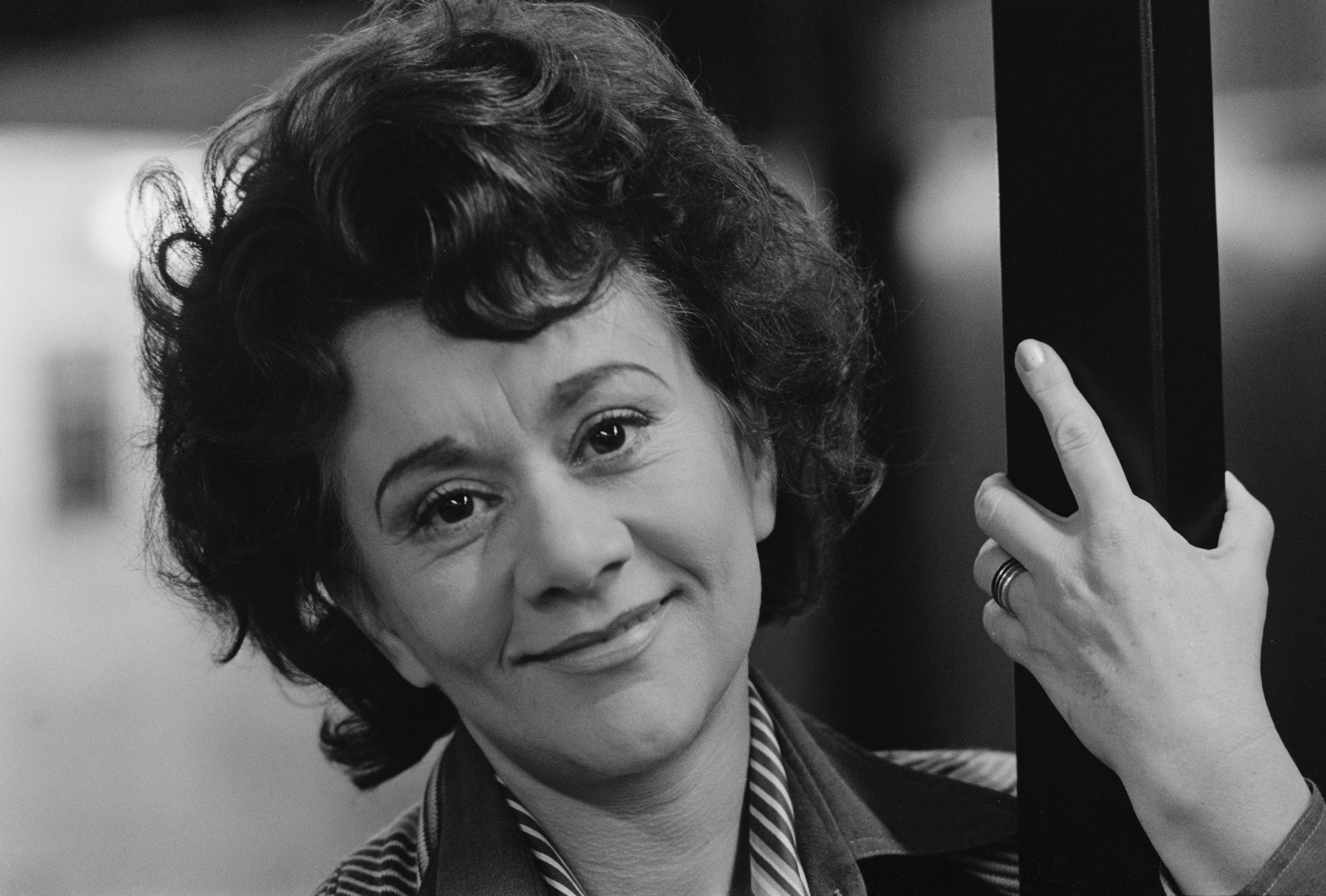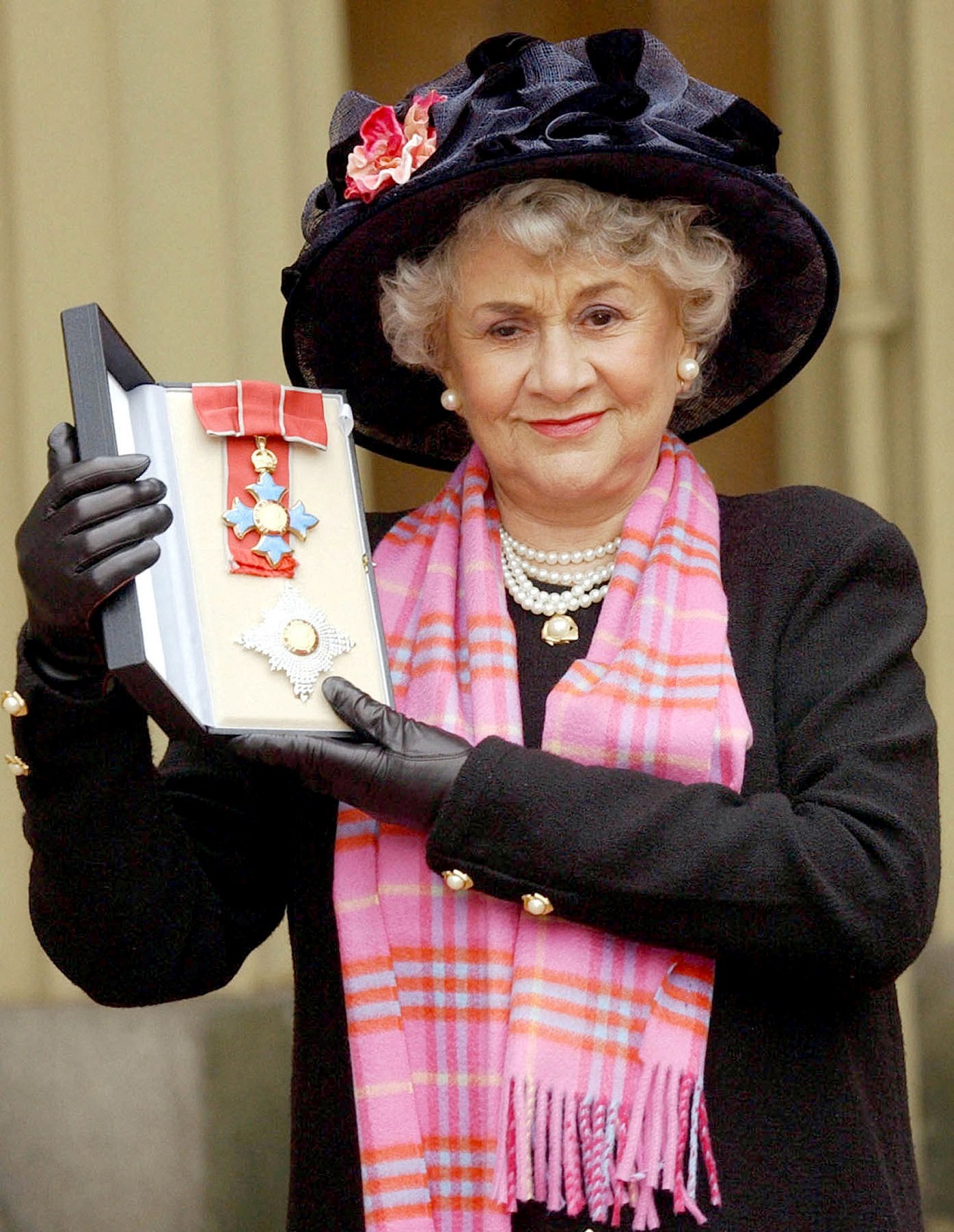
Joan Plowright was a central figure in the reimagining of British theatre.
A founder member of George Devine’s English Stage Company in 1956, she made her name as Beatie Bryant, the working-class heroine in Arnold Wesker’s Roots in 1959, and married Laurence Olivier in 1961. The union of Plowright and Olivier was symbolic of the new theatre order embracing the old glamour, as the greatest actor of the day threw in his lot with the younger generation.
Olivier had scored one of his biggest successes as Archie Rice, the dying music hall star, in John Osborne’s The Entertainer at the Court in 1957. When the play transferred to the West End and Broadway, Plowright took over from Dorothy Tutin as Jean Rice, Archie’s daughter, and their friendship ripened into an unshakeable intimacy, and marriage, that lasted until Olivier’s death in 1989.
Plowright embodied the qualities of common sense, honesty and a sort of earthy vitality that characterised her acting. She had deep brown, currant-bun eyes in a face of plump beauty and openness. Olivier always admired the self-deprecating quality in her performances, and encouraged her to develop this as a comic weapon in her armoury. As she revealed in an affecting autobiography, And That’s Not All (2001), she worried about being employed at the National Theatre as the wife of the boss when Olivier launched that institution first at Chichester in 1962 and then at the Old Vic.
But her early performances, as Sonya in what many believe to be the greatest Uncle Vanya ever seen on the British stage (Michael Redgrave in the title role, Olivier as Astrov, Sybil Thorndike as the old nurse), and as George Bernard Shaw’s Saint Joan, put paid to suspicions of nepotism.
Plowright’s father, William, was a journalist and newspaper editor from Worksop in Nottinghamshire, and her mother, Daisy (nee Burton), an enthusiastic actor from Kent. Joan, born in Brigg, Lincolnshire, was the middle of three children; her younger brother, David Plowright, became a senior executive at Granada Television and was closely involved in much of Olivier’s later television work, including Brideshead Revisited and his final King Lear.
From 1931 the family lived in Scunthorpe, where Joan attended the grammar school before joining the Laban Art of Movement Studio in Manchester and the Old Vic Theatre School in London. Before joining the Royal Court, she appeared in Orson Welles’ bare-stage, kaleidoscopic production of Moby Dick at the Duke of York’s in 1955. As Pip the cabin boy, she was the only girl in a cast that included Patrick McGoohan, Kenneth Williams, Gordon Jackson and Welles himself as Captain Ahab.

When Olivier gave way to Peter Hall at the National, she sidestepped with some dignity all rumours that she might have wanted to succeed her husband, and her memoirs give a lucid account of the jostling that took place between the factions. She worked with her "beloved" Franco Zeffirelli for the first time on the smash hit Saturday Sunday Monday by Eduardo de Filippo at the Old Vic in 1974 and repeated her success with the same author’s equally popular Filumena at the Lyric in 1977.
By the 1980s she was happily reconciled to the older roles, joyfully seizing on Lady Wishfort, "the old peeled wall", in The Way of the World (Chichester, 1984), with Maggie Smith as a definitive Millamant, directed by William Gaskill.
After Olivier’s death, she gathered her family around her in a sombre revival of J.B. Priestley’s Time and the Conways at the Old Vic in 1990. Both daughters, Tamsin and Julie-Kate, were in the cast, as well as her son-in-law, Simon Dutton, and her son, Richard, directed. Her last notable West End appearance was a great one as the fraught mother-in-law, Signora Frola, in Zeffirelli’s sleek 2003 revival of Pirandello’s Absolutely! (Perhaps).
She worked mostly in films, however, from 1990, gracing two charming Italian idylls: Mike Newell’s Enchanted April (1991) and Zeffirelli’s Tea With Mussolini (1999). The latter was based on the director’s own memories of wartime, scripted by John Mortimer, and co-starred her old friends Maggie Smith and Judi Dench.
Before she announced her retirement from acting in 2014, due to her failing eyesight from macular degeneration, she made several more films including Mrs Palfrey at the Claremont (2005), in which she embarks on an unlikely friendship with a young writer played by Rupert Friend, and Anthony Hickox’s spooky horror thriller Knife Edge (2009).
She celebrated her retirement in a series of onstage anecdotal conversations in 2014 with the director Richard Digby Day — "Acting is an outlet for comedy and grief, and all the characters inside you," she said; and, now almost totally blind, invited three fellow dames, and good friends — Dench, Smith and Eileen Atkins — to join her in an overlapping, chatty reminiscence filmed by Roger Michell for the BBC in the garden of the West Sussex home she had shared with Olivier and her young family.
Feisty and funny, Nothing Like a Dame (2018) was a surprise delight. Plowright was made CBE in 1970 and a dame in 2004 and was particularly pleased to receive an honorary degree from Hull University, conferred in a ceremony in Lincoln Cathedral, which she had often visited as a girl. Joan Plowright died on January 16 aged 95. — The Guardian











